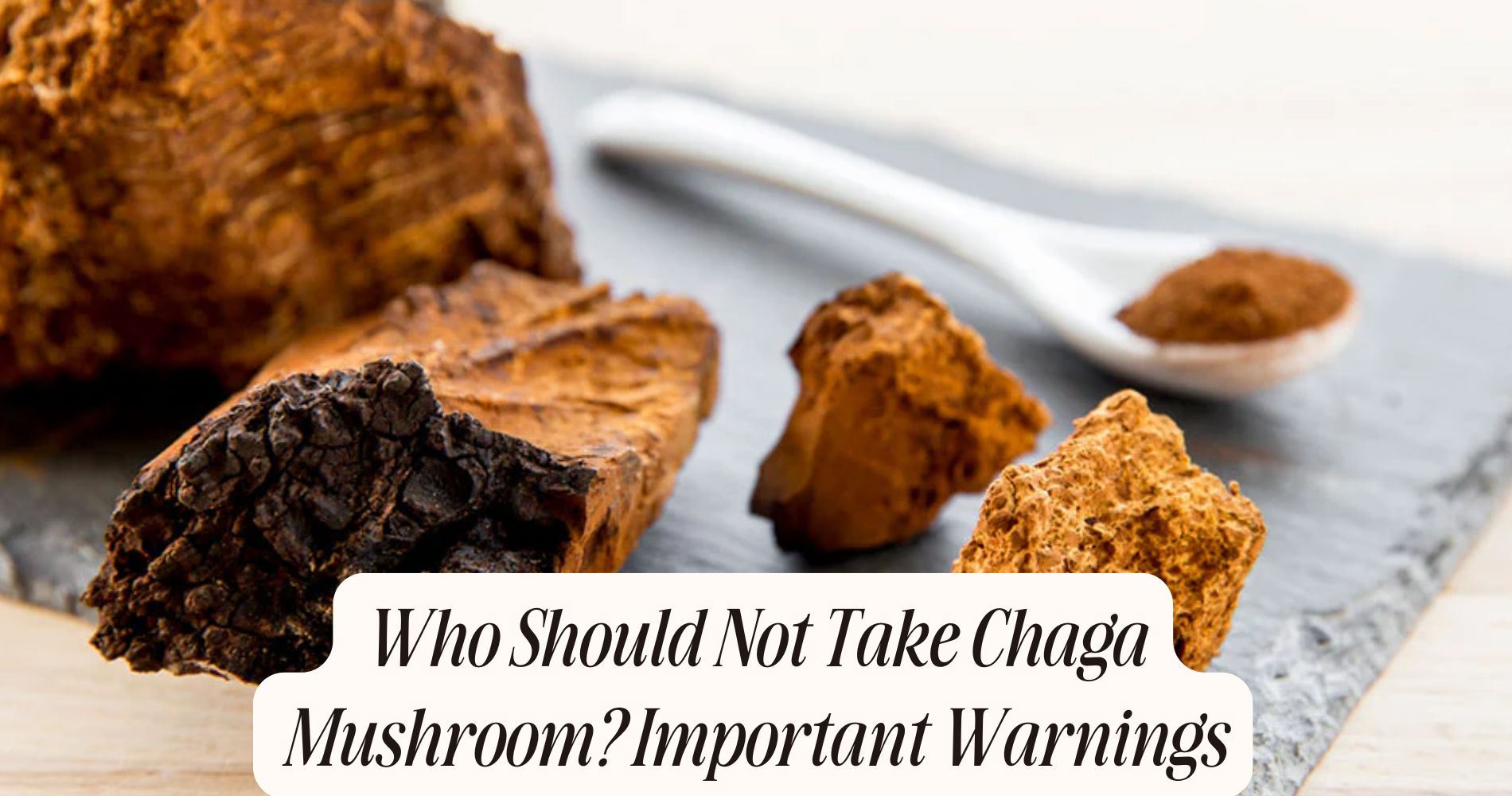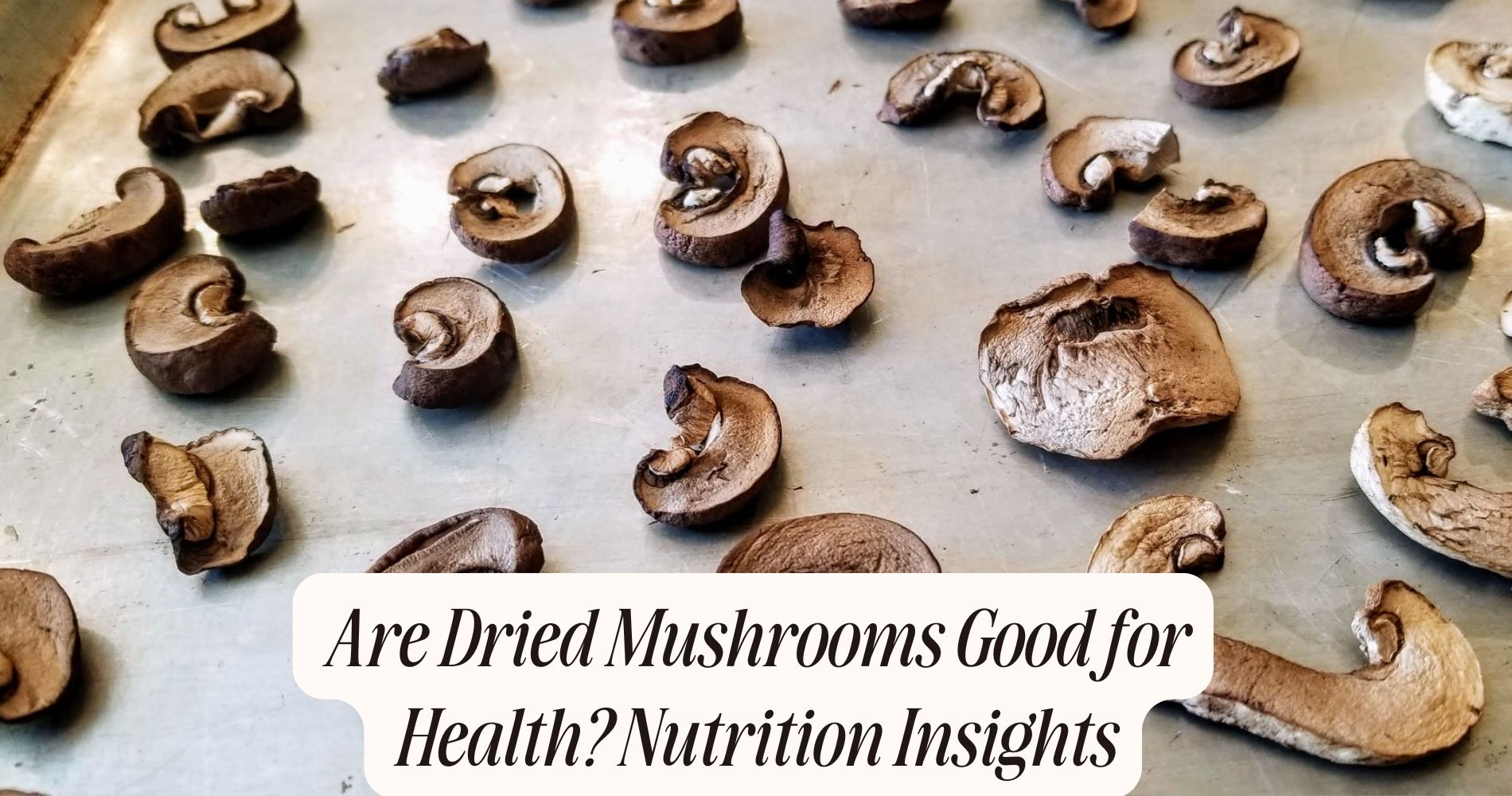
Who Should Not Take Chaga Mushroom? Important Warnings
Who should not take chaga mushroom? You should avoid Chaga mushroom if you have autoimmune diseases, as it can stimulate your immune system and worsen symptoms. It's also advised against for those on blood thinners or undergoing surgery due to increased bleeding risks. If you have diabetes, Chaga might affect your blood sugar levels, while pregnant or breastfeeding women should be cautious due to limited safety data. Allergic reactions can vary, so pay attention to your body. Finally, if you have kidney issues, Chaga could lead to complications. Want to know more about the specific risks and recommendations?
Individuals With Autoimmune Diseases
When it comes to taking Chaga mushroom, individuals with autoimmune diseases should exercise caution.
While Chaga offers various benefits, such as boosting your immune system and providing antioxidant support, it can also stimulate immune responses, which mightn't be ideal for you. If you have an autoimmune condition, your immune system is already overactive, and adding Chaga could exacerbate your symptoms or trigger flare-ups

Before considering Chaga, it's important to consult with your healthcare provider to discuss dosage recommendations tailored to your condition.
Standard dosages range from 1 to 3 grams daily, but your specific needs may differ. Your doctor can guide you on whether Chaga is appropriate for you and how to safely incorporate it into your routine.
People on Blood Thinners
If you're on blood thinners, you should be cautious about taking chaga mushroom.
This supplement can interact with anticoagulants, increasing your risk of bleeding.
Always consult your healthcare provider before adding it to your regimen.
Anticoagulant Interaction Risks
Taking chaga mushroom can pose significant risks for individuals on anticoagulants, as it may enhance the effects of blood-thinning medications. If you're on blood thinners, you should exercise caution before incorporating chaga into your routine.
While chaga benefits include potential anti-inflammatory and antioxidant properties, the interaction with anticoagulants can complicate your health management.
When sourcing mushrooms, it's vital to verify you're getting high-quality chaga from reputable suppliers. Poor mushroom sourcing can lead to contaminants that may further increase risks, especially in individuals taking anticoagulants.
The combination of these factors can make it difficult to maintain stable blood levels, which is fundamental for those relying on medication to manage their condition.
Before considering chaga, consult your healthcare provider. They can help you weigh the potential benefits against the risks.
It's important to prioritize your safety and confirm that any supplement you take doesn't negatively impact your blood-thinning regimen. Remember, open communication with your healthcare team is key to managing your health effectively while exploring new supplements.
Increased Bleeding Potential
For those on blood thinners, the increased bleeding potential associated with chaga mushroom can be a serious concern.
Chaga has numerous health benefits, such as boosting the immune system and providing antioxidants, but if you're on anticoagulants, you should exercise caution. The compounds in chaga may enhance the effects of blood thinners, leading to a higher risk of bruising or bleeding.
When considering chaga, it's crucial to follow proper usage guidelines. This means being aware of the dosage and duration of use, especially if you're taking medications like warfarin, aspirin, or other anticoagulants.

Even though chaga is a natural supplement, it can still interact with your medications in ways you mightn't expect.
If you're tempted by chaga benefits, make sure you weigh them against the potential risks. Always prioritize your safety and health.
If you're unsure about combining chaga with your blood thinners, it's best to err on the side of caution. Understanding the implications of chaga use while on blood thinners can help keep you safe and healthy.
Medical Consultation Essential
Consulting with a healthcare professional is essential for anyone on blood thinners considering chaga mushroom.
While chaga offers numerous health benefits, its interaction with anticoagulants can pose serious risks. Chaga is known to have blood-thinning properties, which may increase your risk of bleeding if you're already taking medication to thin your blood.
Before adding chaga to your regimen, you'll need to discuss your specific situation with your doctor. They can provide personalized dosage recommendations based on your health status and the blood thinner you're using.
Your healthcare provider might suggest avoiding chaga altogether or adjusting your blood thinner dosage if you choose to proceed.
Those With Diabetes
Chaga mushroom might sound appealing for its potential health benefits, but if you have diabetes, you should tread carefully. This unique fungus can influence your blood sugar levels, which is a significant concern for anyone managing diabetes.
While some studies suggest that Chaga may help regulate blood sugar, the effects can vary from person to person. It's essential to monitor how your body reacts if you decide to try it. You might find that it interacts with your current medications or dietary considerations, leading to unexpected fluctuations in your blood sugar.
Since maintaining stable blood sugar is vital for your health, you should avoid any supplements that could complicate your management plan. Before incorporating Chaga mushroom into your routine, consult with your healthcare provider.

They can help you weigh the benefits against the risks, ensuring you're making a safe choice. Remember, your health comes first, and managing diabetes requires careful decision-making. Always prioritize methods that you know work for your body and don't hesitate to seek professional advice when considering new supplements like Chaga.
Pregnant and Breastfeeding Women
If you're pregnant or breastfeeding, it's important to be cautious about what you consume, including supplements like Chaga mushroom. While Chaga is known for its nutritional benefits, its safety during pregnancy and lactation isn't well-studied. You want to make sure that anything you take doesn't pose risks to you or your baby.
Chaga mushroom contains various compounds that may affect hormonal balance and immune function, and these effects can be unpredictable during pregnancy or while nursing.
Dosage recommendations for Chaga are typically geared toward healthy adults, but what works for you may not be suitable when you're pregnant or breastfeeding.
Moreover, since your body is undergoing significant changes, your reactions to supplements can vary greatly. It's important to consult your healthcare provider before incorporating any new supplement into your routine. They can provide guidance tailored to your specific situation, helping you weigh the potential benefits against any risks.
In short, while Chaga mushroom may offer some health perks, err on the side of caution. Prioritize your health and your baby's well-being by seeking professional advice before making any decisions.
Individuals With Allergies
Allergies can complicate your decision to take Chaga mushroom, as reactions to this supplement vary widely among individuals.
While Chaga benefits are touted for boosting the immune system and reducing inflammation, if you have known allergies, you should proceed with caution.
Allergy symptoms can range from mild to severe, including rashes, hives, or even anaphylaxis in extreme cases. If you've experienced allergic reactions to mushrooms or similar substances in the past, it's essential to consult your healthcare provider before trying Chaga.

Even if you've never had an allergic reaction to mushrooms, your body might still respond negatively to Chaga. Everyone's immune system is different, and it's not always predictable how your body will react to new supplements.
To protect yourself, consider conducting a patch test or starting with a very small dose under medical supervision. Monitoring your body's response can help you determine if Chaga is safe for you.
People With Kidney Issues
If you have kidney issues, you should consider avoiding Chaga mushroom.
It can impact kidney function and pose potential toxicity risks that may worsen your condition.
Always consult with a healthcare professional before adding any new supplements to your routine.
Kidney Function Impact
When considering the use of chaga mushroom, individuals with existing kidney issues should proceed with caution.
Chaga is often praised for its potential health benefits, including antioxidant properties and immune support. However, if you have kidney problems, these benefits might come with risks that outweigh them.
Chaga contains oxalates, which can contribute to kidney stone formation. If you're already dealing with kidney health concerns, consuming chaga may exacerbate your situation.
The impact on your kidneys can lead to complications, including impaired function and increased strain on these essential organs.
Before trying chaga, it's important to consult your healthcare provider. They can help assess your specific condition and determine if the potential chaga benefits are suitable for you.
Potential Toxicity Risks
Individuals with kidney issues should be particularly wary of the potential toxicity risks associated with chaga mushroom. While chaga offers various health benefits, including antioxidant properties, the risks for those with compromised kidney function can outweigh these advantages.
If you have kidney problems, your body might struggle to process the high levels of oxalates found in chaga, which can lead to kidney stones and further complications.
Moreover, the mushroom dosage is vital; even small amounts could trigger adverse reactions in individuals with existing kidney conditions. You might find that what works for others may not be suitable for you. It's important to consult your healthcare provider before considering chaga.
The potential for toxicity isn't just about the mushroom itself; it also relates to your overall health and how your kidneys are functioning. If you're unsure about your kidney health, it's better to err on the side of caution and steer clear of chaga.
Patients Undergoing Surgery
Chaga mushroom, known for its potential health benefits, can pose risks for patients undergoing surgery. If you're preparing for surgery, it's essential to take into account any supplements you're taking, including chaga. This mushroom may interfere with anesthesia and other medications, leading to complications during and after the procedure.
Herbal interactions are a significant concern. Chaga has anticoagulant properties, which means it can thin your blood. If you're scheduled for surgery, this can increase your risk of excessive bleeding.
Even if you've been using chaga without issues, it's important to stop taking it well in advance of your surgery. Typically, doctors recommend discontinuing any herbal supplements at least two weeks prior to the procedure.

Before undergoing surgery, always inform your healthcare provider about any supplements, including chaga. They can guide you on the best practices for surgery preparation and guarantee your safety during the procedure.
Those on Immunosuppressants
Those taking immunosuppressants should be cautious with chaga mushroom. While chaga has several benefits, like boosting your immune system and providing antioxidants, these effects can counteract the purpose of your medication.
Immunosuppressants work by reducing your immune response to prevent your body from rejecting transplants or fighting autoimmune diseases. Adding chaga mushroom into the mix might lead to unpredictable results.
When it comes to chaga mushroom dosage, it's unclear how it interacts with immunosuppressants. The lack of research means you could unintentionally increase your risk of infection or other complications.
If you're on immunosuppressants, your priority should be to maintain the stability of your immune system, and introducing chaga could disrupt that balance.
Always consult your healthcare provider before even considering chaga mushroom. They can assess your specific situation and advise you on whether the potential chaga mushroom benefits outweigh the risks.
Support Your Wellness with SUPER MUSHROOM GUMMIES
Even if chaga mushroom isn’t right for everyone, you can still enjoy the powerful benefits of mushrooms with Well Gummies' SUPER MUSHROOM GUMMIES. Each vegan gummy combines 10 functional mushroom types to boost energy, sharpen focus, and strengthen immunity—all in a convenient, chewable form. With a delicious fresh wild berry flavor, they taste like your favorite candy while providing natural, balanced energy without jitters or crashes. Take control of your wellness the easy and tasty way!
Frequently Asked Questions
Can Chaga Mushrooms Interact With Other Herbal Supplements?
Yes, chaga interactions can occur with other herbal supplements. To guarantee herbal safety, you should consult a healthcare professional before combining chaga with other herbs, as effects can vary based on individual health circumstances.
Are There Any Age Restrictions for Taking Chaga Mushrooms?
While there aren't strict age restrictions for chaga mushrooms, it's wise to consult a healthcare provider. They can help determine the appropriate chaga dosage for you, ensuring you enjoy its benefits safely and effectively.
Is Chaga Safe for Children to Consume?
Chaga isn't typically recommended for children due to insufficient research on safe Chaga dosage for them. While it offers potential benefits, it's best to consult a healthcare provider before introducing Chaga into a child's diet.
How Should Chaga Mushroom Be Prepared for Safe Consumption?
When considering chaga preparation methods, you can brew it as a tea or extract it in alcohol. For chaga dosage recommendations, start with one teaspoon daily, adjusting based on your body's response and needs.
Can Chaga Mushrooms Cause Side Effects in Healthy Individuals?
Chaga mushrooms can cause side effects in healthy individuals, especially if taken in high doses. While they offer numerous benefits, you should monitor your chaga dosage to avoid potential digestive issues or allergic reactions.
Conclusion
In conclusion, if you have an autoimmune disease, are on blood thinners, or have diabetes, it's best to steer clear of chaga mushroom. Pregnant or breastfeeding? It's not safe for you either. Those with allergies, kidney issues, or undergoing surgery should also avoid it. Finally, if you're on immunosuppressants, it's essential to consult your doctor before trying chaga. Always prioritize your health and safety, and don't hesitate to seek professional advice!




